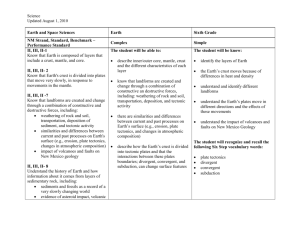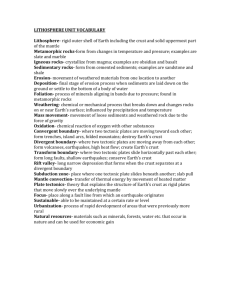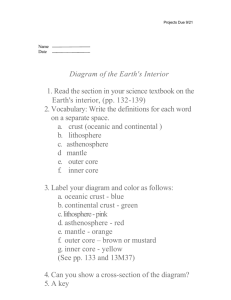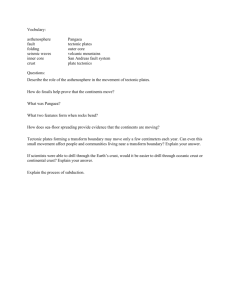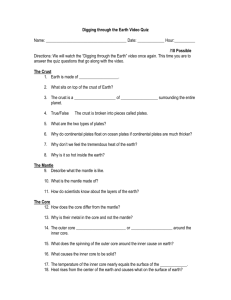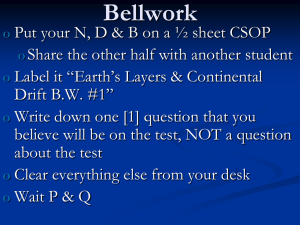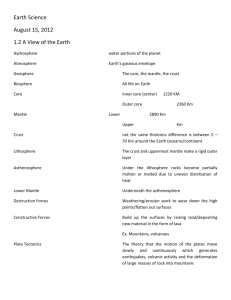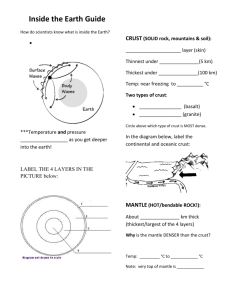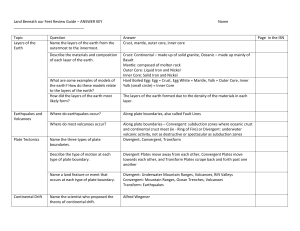Geology Quiz
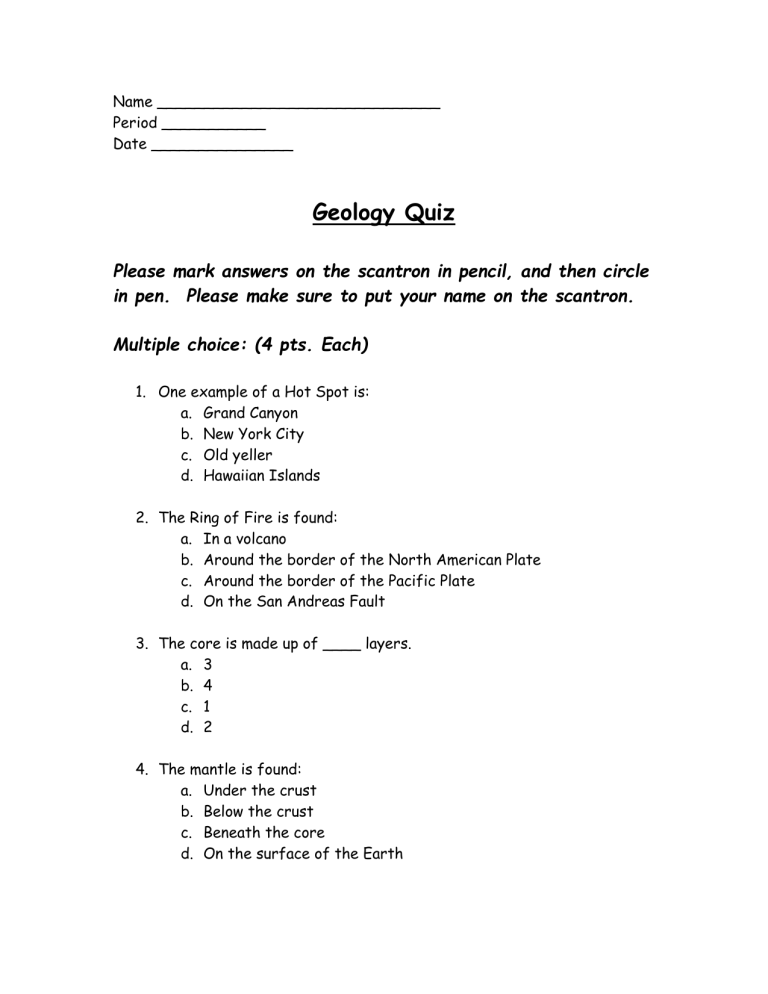
Name ______________________________
Period ___________
Date _______________
Geology Quiz
Please mark answers on the scantron in pencil, and then circle in pen. Please make sure to put your name on the scantron.
Multiple choice: (4 pts. Each)
1.
One example of a Hot Spot is: a.
Grand Canyon b.
New York City c.
Old yeller d.
Hawaiian Islands
2.
The Ring of Fire is found: a.
In a volcano b.
Around the border of the North American Plate c.
Around the border of the Pacific Plate d.
On the San Andreas Fault
3.
The core is made up of ____ layers. a.
3 b.
4 c.
1 d.
2
4.
The mantle is found: a.
Under the crust b.
Below the crust c.
Beneath the core d.
On the surface of the Earth
5.
The mantle is _________km thick. a.
2000 b.
1500 c.
3000 d.
3500
6.
The core is made of: a.
metal b.
steel c.
iron d.
many different kinds of metal
7.
The San Andreas Fault is an example of a ___________ boundry. a.
transform b.
divergent c.
convergent d.
separating
8.
What causes Tectonic Plates to move? a.
ocean currents b.
tectonic motion c.
wind patterns d.
convection currents
9.
Where is the crust the thickest? a.
mountain ranges b.
ocean floor c.
at sea level d.
at the boundry of a tectonic plate
10.
The crust is the ___________ layer of the Earth. a.
innermost b.
outermost c.
under the mantle d.
thickest
11.
The two types of crust are: a.
oceanic and tectonic b.
oceanic and mantle c.
continental and volcanic d.
continental and oceanic
12.
The mantle is made up of solid rock. a.
true b.
false
13.
Tectonic plates remain in one position and do not move. a.
true b.
false
14.
The scientist that proposed the theory of Continental Drift is: a.
Albert Einstein b.
Albert Schweitzer c.
Prince Albert of Monaco d.
Albert Wegener
15.
The name of the land mass containing all of the continents millions of years ago is: a.
Panacopita b.
Pancreatica c.
Panacea d.
Pangea
16.
There are _______ types of plate boundries. a.
2 b.
4 c.
8 d.
3
17.
Subduction is a type of______________ boundry. a.
convergent b.
divergent c.
transform d.
continental
18.
An example of a divergent boundary, or sea-floor spreading is: a.
the San Andreas Fault b.
the mid-pacific ridge c.
the ring of fire d.
the mid-oceanic ridge
19.
What kind of boundary occurs when two continents collide? a.
divergent b.
transform c.
thermal vent d.
convergent
20.
The Lithosphere consists of: a.
mantle and core b.
core and crust c.
upper mantle and crust d.
upper crust and mantle
21.
The crust is made up of magma. a.
true b.
false
22.
What kind of boundary is found at most mountain ranges, volcanoes, and sites of earthquakes? a.
convergent b.
divergent c.
tectonic d.
transform
23.
The crust is _______km thick. a.
2-20 b.
3-50 c.
1-100 d.
5-50
7.
8.
3.
4.
5.
6.
24.
Continental Drift is the theory that the Earth’s surface is constantly changing due to the movement of the plates. a.
true b.
false
25.
Continents are moving at a rate of ________cm per year. a.
2-5 b.
1-3 c.
2-3 d.
1-2
EXTRA CREDIT: (5 pts.)
Name the 8 Tectonic Plates.
1.
2.
